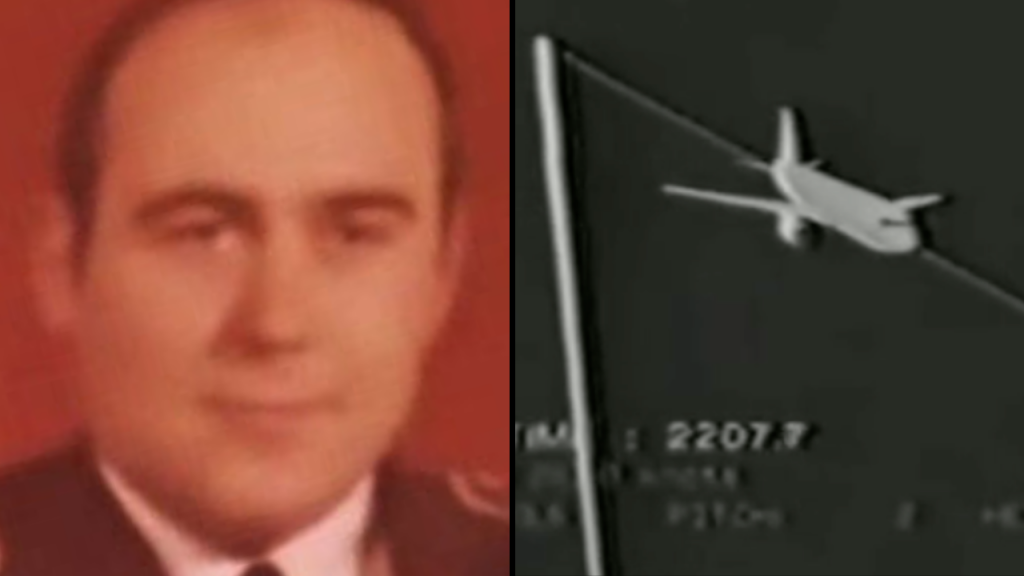The sky above Siberia bore witness to a haunting tragedy that left an unforgettable mark on aviation history. In a moment intended to delight and bond with his children, a pilot’s decision to let them sit at the controls of a commercial flight became the first link in a chain of irreversible events—events that would ultimately end in the loss of 75 lives. The final recorded words of that pilot, filled with urgency and dread, now echo as a sobering reminder of the cost of momentary misjudgment in the air.
It was March 23, 1994, when Aeroflot Flight 593 took off from Sheremetyevo International Airport in Moscow, bound for Hong Kong’s bustling Kai Tak Airport. The aircraft, an Airbus A310, carried 63 passengers and 12 crew members. Among them was 32-year-old relief pilot Yaroslav Vladimirovich Kudrinsky, an experienced aviator and a father of two. That evening, Kudrinsky made a decision that would change aviation protocol and devastate families forever—he invited his 16-year-old son Eldar and 12-year-old daughter Yana into the cockpit while the plane cruised on autopilot.

What began as a lighthearted experience—a proud father sharing his passion with his children—soon teetered on the edge of disaster. Kudrinsky allowed each of his kids to sit in the captain’s seat and interact with the controls. With the autopilot system engaged, it seemed harmless enough. The advanced Airbus A310 could maintain course and altitude independently, allowing minor control adjustments without altering the plane’s trajectory.
But what no one anticipated was how a young, untrained hand might accidentally interfere with that sophisticated system. When Eldar took the controls, he unknowingly applied enough force to disengage part of the autopilot system—just for 30 seconds. But that brief window was long enough to change everything. Unaware that the plane was now in manual control mode, Eldar continued his inputs, causing the aircraft to begin a steady, dangerous right bank.

Initially, no alarms sounded. Nothing obvious indicated a problem—until the plane began tilting to an alarming degree. When the pilots finally noticed the plane’s steep roll—approaching a catastrophic 90-degree bank—it was already too late. The situation unraveled quickly and without mercy.
In the final recording from the cockpit voice recorder, Yana’s voice appears briefly—disappointed that her time in the seat was cut short. Kudrinsky’s warning to her is laced with a mix of fatherly concern and professional fear: “Don’t run there, or they’ll fire us.” Panic then grips the cockpit as Eldar realizes something is wrong. The pilots scramble to regain control, but the aircraft has entered a full aerodynamic stall. The once graceful machine begins an uncontrollable descent.
The pilots manage to briefly pull the plane out of the first dive, but their corrective maneuver is too aggressive. The aircraft stalls again—this time beyond recovery. In the chaos, Kudrinsky’s voice, trembling with fear and authority, is heard urging his son, “Go to the back! Go to the back, Eldar! You see the danger, don’t you?” A desperate plea follows: “Get out now! All is normal.” These were his final words—spoken moments before the cockpit recordings fell silent forever.
The aircraft smashed into the remote, rugged Kuznetsk Alatau mountain range, deep within the Siberian wilderness. There were no survivors. Families lost loved ones in an instant. Entire futures were erased, not by mechanical failure or malicious intent—but by a human decision that defied protocol and trusted instinct over training.
Investigators found no faults in the aircraft’s systems. The plane was airworthy in every way. What doomed Flight 593 was not hardware or weather—it was an avoidable breach of cockpit regulations. The tragedy was not born out of malice, but of misplaced trust and parental pride.
Perhaps one of the most gut-wrenching discoveries was that if the pilots had not intervened and simply allowed the autopilot system to correct the bank after the initial disconnect, the aircraft may have stabilized on its own. The A310 was built to handle such deviations. Human reaction, though swift and well-intentioned, proved fatal.
In the wake of the catastrophe, Aeroflot took immediate action. Strict and clear boundaries were reinforced: unauthorized persons, including family members, were permanently banned from entering the cockpit. Safety protocols were reviewed across the aviation industry, with a new emphasis on maintaining discipline and procedure, no matter how innocent a moment may seem.

Yaroslav Kudrinsky’s final words now live in chilling infamy, not just for what they meant, but for the story they tell—a story of love, human error, and irreversible loss, played out at 30,000 feet in a place where precision must always triumph over sentiment.